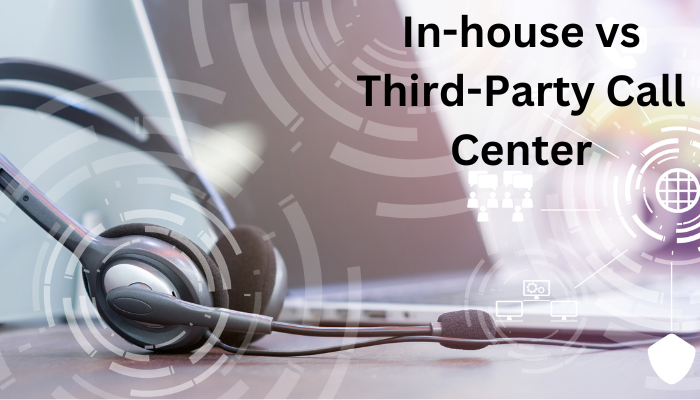
In-house vs Third-Party Call Center: A Comparative Analysis
August 23, 2023 Comment off
In today’s customer-centric business landscape, effective communication is paramount. Call centers play a pivotal role in ensuring that businesses can engage with their customers, address concerns, and provide timely solutions. However, a pressing question many businesses face is whether to set up an in-house call center or to outsource to a third-party provider. Both options come with their own set of advantages and challenges. In this article, we’ll delve deep into a comparative analysis of in-house and third-party call centers to help you make an informed decision.
1. Cost Efficiency
In-house Call Center: Setting up an in-house call center requires a significant initial investment. This includes infrastructure costs, hiring and training personnel, and implementing technology solutions. However, in the long run, having an in-house team can offer more control over operational costs.
Third-Party Call Center: Outsourcing to a third-party provider can be cost-effective in terms of initial setup. These providers have the necessary infrastructure and trained personnel in place, allowing businesses to pay for the service without incurring setup costs.
2. Control and Customization
In-house Call Center: Having an in-house team provides businesses with greater control over operations, training, and quality assurance. It also allows for more flexibility in terms of customizing the service to align with the brand’s voice and values.
Third-Party Call Center: While third-party providers offer standardized services that have been refined over time, there might be limitations in terms of customization. Businesses might also have less direct control over the day-to-day operations.
3. Scalability
In-house Call Center: Scaling up an in-house call center can be challenging and time-consuming, especially when there’s a sudden increase in call volume or when entering new markets.
Third-Party Call Center: Established third-party providers often have the resources and capabilities to scale up or down based on the client’s requirements, making it easier to handle fluctuations in call volume.
4. Expertise and Training
In-house Call Center: Businesses have to invest time and resources in training their in-house team. However, this also means that the training can be tailored to the specific needs and values of the business.
Third-Party Call Center: These providers specialize in call center operations and often have a pool of trained professionals. While this ensures a certain standard of service, there might be a generic approach to handling calls unless specified by the client.
5. Focus on Core Competencies
In-house Call Center: Managing an in-house call center can divert attention and resources from a business’s core competencies, especially for companies where customer service isn’t the primary function.
Third-Party Call Center: Outsourcing allows businesses to focus on their core operations while leaving the intricacies of call center management to experts in the field.
6. Data Security and Compliance
In-house Call Center: Businesses have direct control over data security protocols, ensuring that customer information is handled as per the company’s standards and compliance requirements.
Third-Party Call Center: While many third-party providers adhere to strict data security standards, businesses need to conduct due diligence to ensure that their customer data is in safe hands.
The decision between setting up an in-house call center and outsourcing to a third-party provider hinges on various factors, including cost, control, scalability, and the specific needs of the business. While in-house centers offer more control and customization, third-party centers can be cost-effective and allow businesses to focus on their core competencies. It’s essential for businesses to weigh the pros and cons of each option and choose the one that aligns best with their long-term objectives and customer service goals.